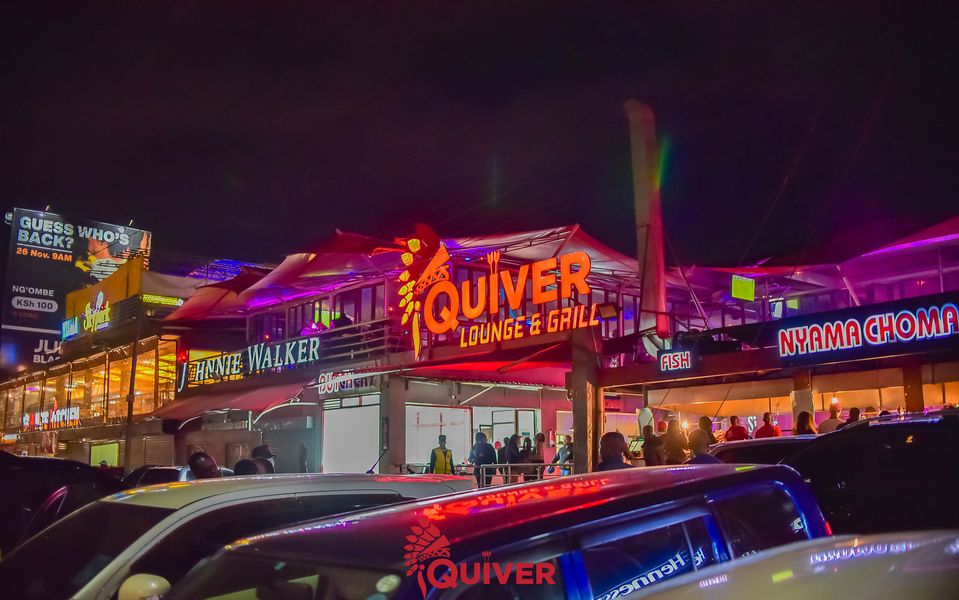Subdued Quiver retreats but that’s not whole story

A nightclub without music? Sounds like a paradox. And if you weren’t aware of the history of tension between Quiver Lounge in Kilimani, Nairobi, and its neighbours over noise pollution – and consequent pressure from city officials – you’d think the bar’s managers must have had a chastening epiphany.
The new strategy “aims to create a vibrant atmosphere where guests can fully enjoy their time without the distraction of loud music”, they said in a dispatch to customers. People “can still eat, drink and have fun while engaging in meaningful conversations and connecting with one another”.
How considerate. But there wasn’t a single word that the club was on the verge of being closed down by city officials after years of complaints from neighbours about the deafening noise from the music it played!
Not living in Kilimani, I have no clue how unbearable things got for Quiver’s neighbours. I can only imagine.
As it happens, there’s a Quiver about 10km from where I live. I’ve never been inside, but I steal glances at it from the highway every now and then.
It strikes me as a pretentious, middle-class joint frequented by car-owning strivers who happen to have a few extra shillings to blow on nyama choma and alcohol.
It sits in a building abutting the thoroughfare through the town and is surrounded by at least two hospitals, apartment blocks, churches and other bars.
On any given night, the noise from its sound systems drowns out the feeble tremors from all the other bars, making it sound like the only joint in the neighbourhood.
And maybe that’s the point of it all. The practice of playing loud music in nightclubs, I gather, isn’t as old as one might have imagined. Its roots go back to the 1960s and 1970s, with the rise of disco culture.
The idea is that people make merry and dance to recorded or live music that’s enhanced by amplifiers. This is meant to immerse revellers in a high-energy environment that encourages social interaction.
But the greater driving force, in the Kenyan context, seems to be the need to encourage drink sales (rents can be a drain and workers must be paid). Because loud music makes conversation difficult, patrons tend to drink more – what else are you supposed to do if you can’t be heard by your tablemates?
As nightclub owners are aware, while the practice of playing loud noise might have been tolerated in the past, attitudes are changing and people are more concerned about noise pollution and its potential health impacts, such as hearing damage.
Whether it’s the bandwagon effect or greater enlightenment through better education, urban dwellers in Kenya want what residents of many other cities around the world have – noise regulations that are strictly enforced.
Sadly for us in Kenya, noise rules are not consistently enforced. But we are not alone. South Africa, for example, has national and local laws that address noise pollution. Local by-laws regulate noise levels and set time limits.
Offenders who violate some of SA’s noise rules can be imprisoned for up to two years. But enforcers and the general public down there are often ignorant of these rules.
Farther out in Europe, though, citizens tend to default to the law. In Germany, for example, Berlin, a city famed for its pulsating nightlife, imposes strict rules about soundproofing for clubs located in residential areas.
Other European cities require nightclubs to lower music volumes after a certain hour, especially if they are near residences.
No such luck in Kenya. In the Quiver Kilimani case, it’s not even clear whether the bar’s owners truly mean ‘no music whatsoever’. That sounds impractical and unnecessarily extreme.
No one would have a problem enjoying his dinner with soothing jazz at low, tolerable volumes in the background. But then again such a joint would not be called a ‘nightclub’ anymore.
The writer is a Sub-Editor with People Daily












